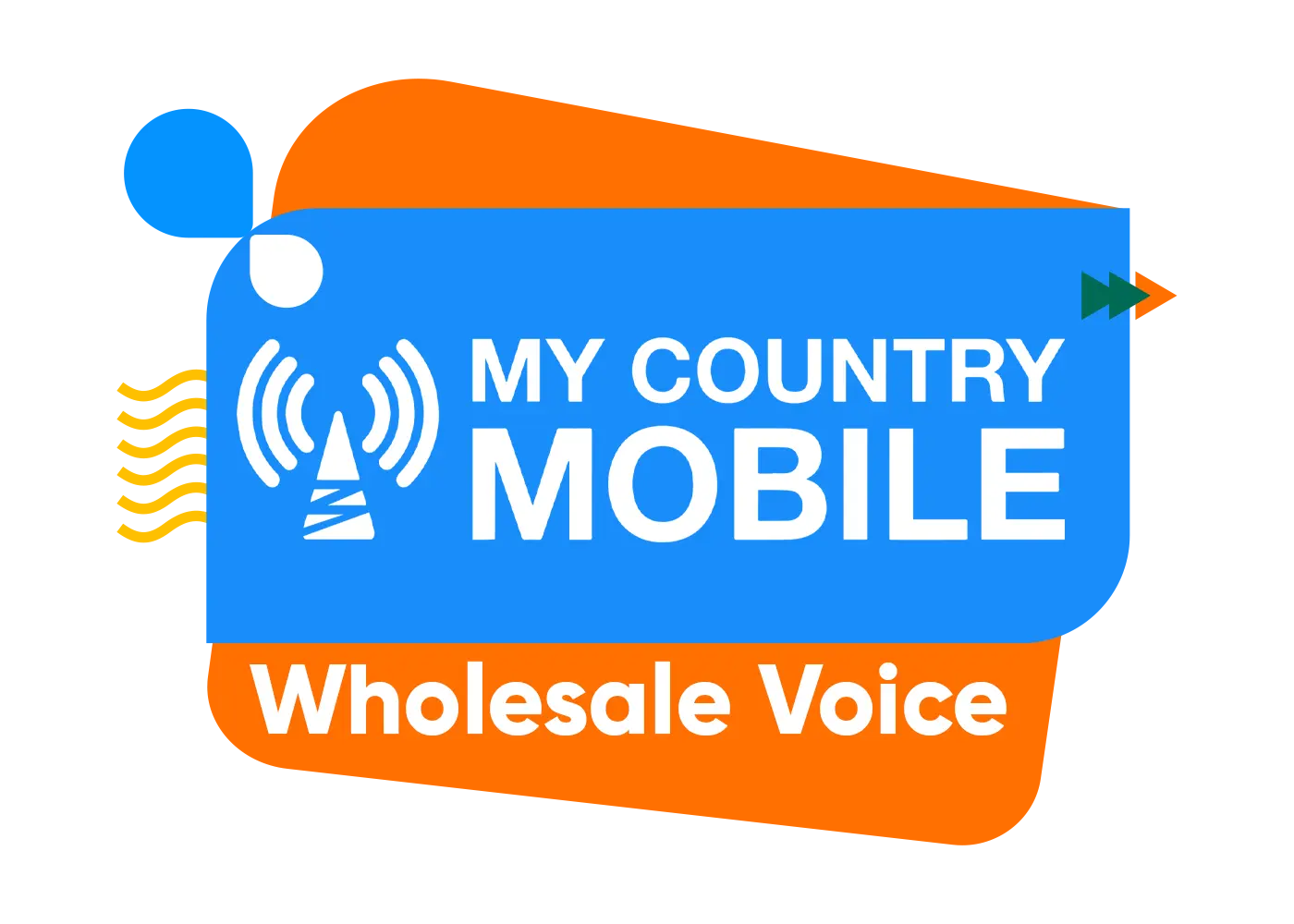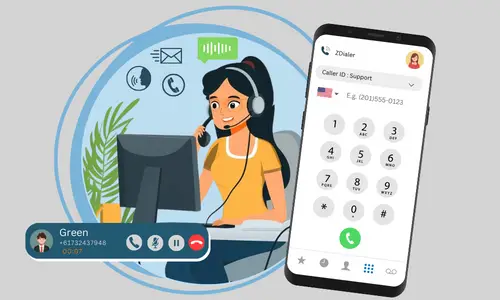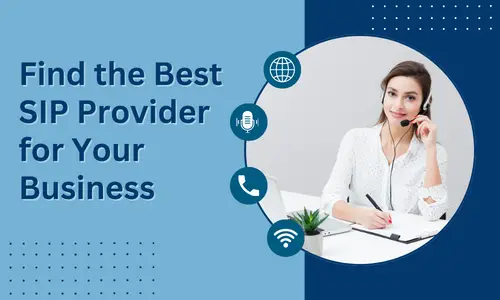Wholesale VoIP to Dominate the Market and Boost Sales
Wholesale VoIP service assists businesses in enhancing communication and gaining market dominance through a cost-effective and efficient digital infrastructure. This infrastructure will be beneficial for businesses in the future. By 2024, businesses can improve sales and work better with colleagues, partners, and customers worldwide using feature-rich services.
What is Wholesale VoIP?

Understanding Wholesale VoIP
Wholesale VoIP business is the process of using VoIP to provide voice services to businesses at a significantly discounted rate compared to traditional copper, fiber, and even wireless solutions.
By utilizing VoIP, businesses can take advantage of additional features such as converged applications, unified communications, web conferencing, and enhanced Growth, while enjoying cost savings due to Simulation. A suite of solutions tailored to each business that seeks to bring the best of connectivity, Growth, and features to create a powerful and robust communication solution.
How does Wholesale VoIP work?
Wholesale VoIP Termination is a telecommunication service that provides businesses individuals with a reliable, secure,and cost-effective way of communication. Provides businesses with access to voice and data services,allowing themtouse voice and data applications such as video conferencing and online collaboration Also able to save a significant amount of money by using VoIP instead of traditional telephone systems.

The Power of Wholesale Termination

Enhancing Communication Capabilities
Reliable and Cost-Effective Solutions for
Businesses Scalable Capacity
VoIP solutions provide robust, scalable capacity to accurately handle large call volumes efficiently and cost-effectively. The system allows businesses to manage their communications with detailed records of call activities.
Toll-Free Numbers and International Calls
Wholesale VoIP Origination is an important service, especially with regard to toll–free numbers as callers are originators and able to make free calls. It also facilitates international calling, allowing users to make international calls at lower prices. The service is provided by telecom carriers, enabling businesses and individuals to make calls over the Internet at wholesale VoIP rates
Key Features and Benefits
Scalable Calling Abilities
Cost-Effective Integrations
Wholesale VoIP rates are important for companies to reduce communication costs, delivering efficient quality calling. Our diverse range of packages and services provides flexible solutions and effortless call monitoring, making it simple and efficient to manage your communications.
Intelligent Routing and Call Management
Wholesale VoIP LCR helps businesses maximize communication efficiency and improve customer experience. It provides automated call routing, business intelligence, and call management. It also enables businesses to control costs and optimize call routing, as well as track the performance of the calls.
Choosing the Right VoIP Service Provider
– Providers offer a wide range of plans and user-friendly administration interfaces
– Quality network management is essential for a reliable VoIP service provider
– Providers provides quality network management
– The provides security against fraud and has implemented the latest fraud prevention technology
– Providers offer a wide range of customization options
– The provides global coverage and value for money
Empowering Businesses
– Provides services to businesses, resellers, and VoIP service providers
– Focus on profit margins, origination, termination, and various services
– Offers cost-effective, customizable, and reliable solutions
– Services include collocation, fax, and emergency services
Automating Invoice
– Provider provides auto invoice software
– The software streamlines the Wholesale inovoice process.
– VCS Wholesale’s team of experts offers 24/7 support
– The software helps businesses maximize efficiency.

VoIP Solution for Businesses
Experience crystal-clear voice quality, enhanced Growth, and cost-effective calling plans tailored to your business needs. Streamline your communication infrastructure and elevate your business to new heights with reliable VoIP Solution.

Hosted PBX Phone Systems and Call Center Solutions
Hosted PBX phone systems that provide businesses with virtual attendants, virtual phone numbers, call center solutions, and data backup services. These solutions cater to the needs of businesses requiring local and long-distance calling capabilities, toll-free services, and seamless communication management.

VoIP Billing and Automation
Securing Businesses: VoIP Fraud Protection
VoIP plays a crucial role in protecting businesses from fraudulent calls. With robust security measures, VoIP solution safeguards against unauthorized access and fraudulent activities. By partnering with a reputable VoIP termination provider, businesses can benefit from advanced call routing and monitoring systems, ensuring that calls are securely transmitted to the intended destination.
Detailed records and minute-by-minute analysis enable quick identification and prevention of fraudulent activities. VoIP also offers enhanced authentication methods and call restrictions, providing businesses with peace of mind and protecting their communication infrastructure from potential fraud threats.
Goodbye to Security Concerns!
Wholesaler solves security concerns by partnering with reliable VoIP wholesale termination providers. With advanced VoIP solutions, businesses in the UK, the US, and all over the globe can reach can implement secure communication channels. Small businesses VoIP solution and call center VoIP solution addresses specific security needs.
VoIP providers offer robust security measures, resolving common VoIP problems and providing secure connections. This comprehensive solution ensures that businesses can confidently leverage VoIP technology while safeguarding against potential security threats.

The Future of Wholesale VoIP
Wholesale VoIP Providers have an integral role in the changing telephone communications landscape and will continue to play an increasingly important role in the future. By working closely with carriers and end users, they can ensure that the network is optimized for best performance and sound quality while helping to keep costs low.
The global wholesale voice carrier market is projected to reach USD 31 billion by 2028, with a CAGR of 4.6% growth. It is driven by the increasing adoption of smartphones and VoIP devices, cloud-based solutions, unified communications, and hosted VoIP. This enables cost-effective telephony and communication services, especially in the Asia-Pacific region.

Driving the Telecom Revolution
Wholesalers have revolutionized the telecom sector by offering affordable and reliable communication solutions. With the ability to handle transit traffic exchange, connect to local PSTN networks, and negotiate costs and profit margins, businesses can thrive in an increasingly connected world.
Embracing Technological Advancements
With the continuous growth of the mobile VoIP market and the rising demand for alternative communication technology, VoIP is positioned for ongoing innovation. Advancements in connectivity, API integrations, and regulatory compliance ensure that businesses can leverage the full potential of Wholesale Voice.
Accessing Global Communication Networks
Wholesale VoIP carrier networks offer a solution for companies looking to provide reliable, secure, and cost–effective communication services. It allows carriers to connect their IP infrastructure to the global communications network, providing customers with access to VoIP services at competitive rates.
Future-Proofing Communication
With the availability of Freephone, Shared Cost, and Premium Rate geographic numbers, VoIP connectivity is evolving to meet the demands of businesses and consumers. As technology advances and regulations adapt, VoIP will continue to provide future-proof communication solutions.
Impact of VoIP in Telecom Industry
VoIP has transformed the telecom sector, offering businesses scalable call abilities, cost-effective integrations, and enhanced call quality. With Wholesale VoIP Termination providers like VoIP Innovations and efficient billing solutions from VCS Wholesale, businesses can leverage the power of VoIP to streamline communication, reduce costs, and stay ahead in a competitive landscape. As the industry evolves, embracing technological advancements and ensuring compliance with global regulations will be key to driving the future of Wholesale Voice.

Upgrade Your Communication Today
– Utilizes the latest technologies and AI-driven solutions
– Experienced team of engineers ensures high
– Quality connections and reliable performance
– Comprehensive portfolio of VoIP solutions, including competitive prices, real-time billing, call routing, API integration, and more
– Offers tailored solutions to specific business needs
– VoIP solutions are reliable, cost-effective, and secure
– Support available 24/7 to help with technical difficulties
– Commitment to excellence in customer service and technological innovation
– Service offered in over 200 different countries
Want to Learn More About Wholesale VoIP?
If you’d like to learn more about how wholesale VoIP termination can benefit your business, we’re happy to help! Please feel free to contact us to book a consultation call.
FAQs
What are the VoIP Termination Companies?
VoIP termination companies are service providers that help businesses connect phone calls using the internet instead of traditional phone lines. They route the calls from one provider to another until they reach the intended recipient. This technology enables businesses to make cost-effective and high-quality voice calls, especially for call centers and other businesses that rely heavily on phone communication. VoIP termination companies offer competitive rates and reliable connections to improve the efficiency and quality of voice calls for businesses.
What is Wholesale VoIP Service?
Wholesale VoIP service involves a carrier providing bulk Voice over IP minutes, infrastructure, and capabilities to enable another company to deliver VoIP offerings to their customers.
What is Wholesale VoIP LCR?
LCR (Least Cost Routing) is a method used in wholesale VoIP to automatically route calls through the lowest cost telecom network available. It saves money by dynamically selecting routes based on pricing, quality, and availability.
What is Wholesale SIP Termination?
Wholesale SIP termination is a service provided by telecommunications companies that allows businesses to make and receive large amounts of phone calls. It uses a technology called SIP to route calls over the Internet, which is cheaper and more flexible than traditional phone lines. Wholesale providers offer these services in bulk to other businesses, who can then offer them to their own customers. It’s a cost-effective and reliable solution for businesses with high call volumes.
What are Wholesale SIP Termination Providers?
Wholesale SIP termination providers are companies that offer bulk voice communication services using Session Initiation Protocol (SIP) technology. They supply voice services to other businesses or service providers, who then offer these services to their own customers. This cost-effective solution is ideal for businesses with high call volumes, as it allows for reliable and flexible telephony services transmitted over the Internet.
What is Wholesale VoIP Origination?
Wholesale VoIP origination refers to the source or origin point of a VoIP call being connected through a wholesale carrier’s network. The wholesale carrier provides the origination capacity and routing to initiate the call.
What is VoIP termination Wholesale?
VoIP termination wholesale is a service where providers act as middlemen between businesses and telecom carriers to deliver VoIP calls. These providers buy large quantities of voice traffic from carriers and sell it at a lower cost to resellers like telecommunications businesses, VoIP service providers, and ISPs. They use advanced routing technology and big call termination servers to ensure calls reach the right destinations.
What is Wholesale VoIP UK?
Wholesale VoIP in the UK is a service where companies provide large quantities of voice communication services over the Internet to other businesses. These services can include call termination, SIP trunking, and DID numbers. It allows businesses to resell these services to their own customers. This helps businesses streamline their communication services and offer them at a larger scale.
What is VoIP Termination?
VoIP termination is the process of routing phone calls from one network provider to another until the call reaches its intended destination. It allows businesses to make high-quality outbound calls from any device or location. Choosing the right VoIP termination provider involves considering factors like call quality, reliability, and pricing.
How do Wholesale VoIP Minutes providers work?
Wholesale VoIP minutes providers are companies that offer Voice over IP (VoIP) termination, origination, and routing services at wholesale rates to other businesses such as telecommunication carriers, internet service providers, resellers, and call centers. They enable their clients to buy VoIP minutes in bulk at discounted prices and then resell them for a profit.
What is call center VoIP Termination?
Call Center VoIP termination is a technology that helps call centers by making sure phone calls are sent to the right place. It changes phone signals into digital data that can be sent over the internet. Then, when it arrives at its destination, it changes the data back into a regular phone signal. This helps call centers operate smoothly and allows agents to communicate clearly with customers.
What are VoIP Wholesalers?
VoIP wholesalers are companies that own and manage the infrastructure and technology required for providing VoIP phone services. They sell these VoIP services at wholesale rates to resellers, who then brand, package, and resell them to end-user businesses and customers at retail prices. This wholesale model allows resellers to get into the VoIP business without having to invest in building their own platforms and networks. The wholesalers handle all the technical aspects like call routing, number provisioning, and 911 services while providing tools for resellers to manage their end-users.
What are Wholesale Carriers?
Wholesale carriers are companies that own and operate telecommunications networks and infrastructure. They sell network capacity in bulk to other service providers, who then resell it to end users. Wholesale carriers enable other providers to offer services without having to build their own networks. They provide the backbone network capacity that powers connectivity for businesses, homes, and mobile networks. Wholesale carriers own things like fiber optic cables, cell towers, switches, and data centers.
What is Wholesale Call Termination?
Wholesale call termination refers to the business of terminating international phone calls over the internet. Companies that provide wholesale call termination purchase large volumes of voice minutes from telecom carriers worldwide. They then sell these minutes at a markup to other providers who need to terminate international calls but don’t want to manage contracts with multiple carriers globally. The wholesale call termination provider handles routing calls over IP networks and delivering them to their final destination.
What is CC Routes VoIP?
CC routes in VoIP refer to the specific call routing configurations and strategies implemented in call center phone systems to optimize call handling and distribution. Properly configured CC routes in a VoIP system enable call centers to efficiently route each incoming call to the best available agent. This improves customer service and satisfaction by reducing wait times, balancing agent workload, and getting callers to the right agent skillset. VoIP providers offer reliable CC routing options tailored to call center needs like automatic call distribution, skills-based routing, and real-time reporting to help call centers maximize productivity.
What is VoIP Wholesale?
VoIP wholesale is when companies provide voice communication services to other businesses using the internet. This allows businesses to sell these services to their own customers, helping them grow their VoIP calling capabilities. Wholesale VoIP providers offer affordable and dependable telephony solutions to industries like contact centers, cable providers, and managed service providers.
What is Wholesale VoIP Termination?
Wholesale VoIP termination is a service that allows businesses to route and complete large numbers of voice calls using internet technology. Instead of using traditional phone lines, VoIP providers transmit calls over the internet, which lowers costs and provides more flexibility. Wholesale providers sell these voice services in bulk to other businesses, who can then offer them to their own customers. This is a cost-effective solution for businesses with high call volumes.
What are Wholesale VoIP Rates?
Wholesale VoIP rates are the special prices offered by VoIP providers to businesses and service providers who need a large amount of voice communication services. These rates are lower than regular prices, making it more affordable for businesses with a lot of calls. By using wholesale rates, businesses can resell voice services to their own customers at a lower cost, while still maintaining good call quality.
What are Wholesale VoIP providers?
Wholesale VoIP providers are companies that offer voice communication services using internet technology. They supply these services in large quantities to other businesses, who then offer them to their own customers. This helps businesses with high call volumes to have reliable and cost-effective phone solutions. Wholesale VoIP providers transmit voice services over the internet, resulting in lower costs and more flexibility compared to traditional telephone services.
How to Start a VoIP Wholesale Business?
Here are the key steps to start a VoIP wholesale business:
- Research the market – Do thorough research on the VoIP industry, competitors, technology, trends, and regulations. Understand the needs of potential customers. This will help devise an effective business strategy.
- Choose a business model – Decide to become a wholesale VoIP provider by investing in your own infrastructure or a wholesale VoIP reseller by partnering with existing providers. Evaluate costs, expertise required, risks, and profitability.
- Obtain funding – Calculate the capital required for infrastructure, systems, hardware, software licenses, human resources, marketing, etc. Raise funding from investors, loans, or personal resources. Financial planning is critical.
- Set up technology infrastructure – As a provider, invest in servers, gateways, softswitches, bandwidth, network capacity, etc. As a reseller, integrate systems with vendor platforms. Ensure scalability, security, and reliability.
- Develop operations – Build capabilities for service provisioning, number allocation, call routing, billing, customer support, and technical assistance. Hire qualified personnel or outsource expert tasks.
- Forge partnerships – Connect with telecom carriers, ITSPs, hardware vendors, and platform developers through vendor agreements, wholesale contracts, etc. Partnerships expand service capabilities.
- Acquire customers – Market extensively to call centers, telemarketers, SMEs, remote offices, etc. Pitch the benefits of your wholesale VoIP services and competitive advantages.
- Deliver excellent service – Provide uninterrupted high-quality voice services, number portability, detailed billing, dedicated account management, and top-notch technical support. Focus on customer retention.
The wholesale VoIP business requires significant strategic planning, sizable investments, technological competence, and customer service skills to succeed. But the potential rewards are substantial too.
What are wholesale VoIP Minutes?
Wholesale VoIP minutes refer to the bulk minutes of Voice over IP calling time purchased from a wholesale carrier. Companies buy large minute pools at wholesale rates to power their own VoIP platforms and services.
What are the benefits of using VoIP services for businesses?
VoIP service providers offer a range of advantages for businesses. They provide cost-effective communication solutions, scalable calling capabilities, and enhanced call quality. Wholesale VoIP enables businesses to handle large call volumes efficiently and offers customizable options. With reliable routing and detailed records, businesses can optimize their communication infrastructure while reducing costs.
What are wholesale VoIP Routes?
Wholesale VoIP routes are bulk voice communication services provided by service providers to businesses, allowing them to resell these services to their customers. It involves the transmission of voice signals over the Internet using IP networks, resulting in lower costs, increased flexibility, and seamless communication across different countries.
What is Wholesale VoIP Traffic?
Wholesale VoIP traffic is the large-scale exchange of voice calls over the internet between telecom operators. It involves managing and connecting multiple service providers to enable seamless communication across different regions. Wholesale VoIP providers act as intermediaries, connecting retail and wholesale VoIP providers for cost-effective and reliable telephony services. Using VoIP technology, they can transmit voice communication over the internet, resulting in lower costs and increased flexibility compared to traditional phone services.
How do I choose the right wholesale provider for my business?
When selecting a wholesale provider for your business, consider factors such as their service offerings, network reliability, customer support, and pricing options. Look for providers with a proven track record, robust security measures, and a comprehensive range of services that align with your business needs. Evaluating their experience in the industry and customer reviews can help ensure a successful partnership for your wholesale VoIP requirements. One such company is My Country Mobile.
What distinguishes wholesale from retail VoIP?
Wholesale caters to businesses with high call volumes and independent call routing, while retail VoIP serves individual consumers and small businesses with complete call management.
Can I integrate VoIP services with my existing communication systems?
Your existing communication systems can easily integrate with VoIP services. With proper configuration and setup, you can seamlessly connect your VoIP infrastructure with your PBX systems, call center solutions, or any other telephony equipment you may already have in place. This integration allows you to leverage the benefits of wholesale VoIP while maintaining the functionality of your existing systems.
How does VoIP save costs?
It offers competitive pricing, bulk rates, and efficient network utilization, eliminating the need for multiple phone lines and reducing hardware expenses. Scalability ensures paying only for required capacity, optimizing cost-efficiency.
What is a Wholesale VoIP Voice?
Wholesale VoIP voice involves delivering voice communication services on a large scale using VoIP technology. Wholesale VoIP providers offer these services in bulk to other businesses, carriers, and service providers, who can then resell them to their customers. This approach enhances cross-network and cross-platform communication while offering benefits like lower call rates, improved quality, and increased flexibility compared to traditional telephony systems.
What is a VoIP Termination Wholesale?
Wholesale VoIP termination involves the widespread use of Voice over Internet Protocol (VoIP) technology to route and finalize voice calls across networks. Wholesale VoIP providers offer voice services in bulk to businesses, carriers, and service providers, allowing them to resell these services. This approach enables affordable, high-quality, and flexible communication across various networks and platforms, surpassing traditional telephony systems.
What is a VoIP Minutes Wholesale?
Wholesale VoIP termination involves the widespread use of Voice over Internet Protocol (VoIP) technology to route and finalize voice calls across networks. Wholesale VoIP providers offer voice services in bulk to businesses, carriers, and service providers, allowing them to resell these services. This approach enables affordable, high-quality, and flexible communication across various networks and platforms, surpassing traditional telephony systems.
What is a VoIP Wholesale Carrier?
A VoIP wholesale carrier is a company that offers extensive voice communication services using Voice over Internet Protocol (VoIP) technology to businesses, carriers, and service providers. They enable efficient and budget-friendly communication across diverse networks and platforms by providing voice services in bulk. This empowers businesses to resell these services, leading to reduced call costs, enhanced call quality, and heightened flexibility when compared to traditional telephony systems.
What is a Wholesale VoIP Origination?
Wholesale VoIP origination is the process of using Voice over Internet Protocol (VoIP) technology to accept and route incoming voice calls from traditional telephone networks to their intended destinations. Wholesale VoIP providers offer voice services in bulk to other businesses, carriers, and service providers, enabling them to resell these services to their own customers. This approach allows for cost-effective and seamless communication across different networks and platforms, offering businesses lower call rates, improved call quality, and increased flexibility compared to traditional telephony systems.
What is a Wholesale VoIP UK?
Wholesale VoIP UK pertains to offering extensive voice communication services using Voice over Internet Protocol (VoIP) technology specifically within the United Kingdom. In this business model, wholesale VoIP providers supply voice services in bulk to other businesses, carriers, and service providers, enabling them to resell these services to their customers. This method ensures cost-effective and smooth communication across various networks and platforms, granting businesses reduced call costs, enhanced call quality, and heightened flexibility compared to traditional telephony systems.
What are Wholesale VoIP minutes providers?
Wholesale VoIP minutes providers are telecom carriers that sell large quantities of VoIP minutes, network infrastructure, and services to enable other businesses to offer VoIP capabilities. They cater to resellers and service providers.
What are Wholesale VoIP Termination Providers?
Wholesale VoIP termination providers are firms that focus on delivering voice communication services on a large scale using Voice over Internet Protocol (VoIP) technology. These providers offer voice services in bulk to various businesses, carriers, and service providers, allowing them to resell these services to their end customers. This approach enables cost-efficient and seamless communication across multiple networks and platforms, resulting in lower call rates, enhanced call quality, and greater flexibility in comparison to traditional telephony systems.
What are VoIP Wholesale Service Providers?
VoIP Wholesale Service Providers are firms that focus on delivering voice communication services on a large scale using Voice over Internet Protocol (VoIP) technology. These providers offer voice services in bulk to various businesses, carriers, and service providers, allowing them to resell these services to their end customers. This approach enables cost-efficient and seamless communication across multiple networks and platforms, resulting in lower call rates, enhanced call quality, and greater flexibility in comparison to traditional telephony systems.
What is Wholesale A-Z VoIP termination?
Wholesale A-Z VoIP termination refers to the large-scale process of routing and completing voice calls from one network to another using Voice over Internet Protocol (VoIP) technology. In this business model, wholesale VoIP providers offer voice services in bulk to other businesses, carriers, and service providers, enabling them to resell these services to their own customers. This approach allows for cost-effective and seamless communication across different networks and platforms, providing businesses with lower call rates, improved call quality, and increased flexibility compared to traditional telephony systems.
What are some of the leading wholesale VoIP providers around the world?
Some major global wholesale VoIP providers include:
- My Country Mobile – Headquartered in Dubai, My Country Mobile provides wholesale VoIP services worldwide. we have an extensive network across Caribeanm, Middle east, Europe, Asia, and North America to support international voice traffic.
- Verizon – As one of the largest telecom companies, Verizon offers advanced VoIP solutions through its global network covering over 150 countries. Verizon caters to large enterprises, government agencies, and wholesale partners.
- BICS – BICS is a leading international communications enabler with a global VoIP footprint. Their worldwide network covers Europe, the Middle East, Africa, the Americas and Asia Pacific.
- Ace Peak – Ace Peak offers global VoIP termination services with POPs located across the Americas, Europe and Asia. They provide reliable call routing worldwide.
These providers have the scale, coverage and technical capabilities required to serve major wholesalers and carriers across different regions. They enable global voice connectivity through their extensive VoIP networks.
Related Page

Wholesale VoIP Termination Rates for Supreme Savings In 2024
Introduction to VoIP and Its Significance in Modern Communications Voice

Wholesale Voice : Voip Solutions for Business
Wholesale Voice: VoIP Solutions for Business Communication Wholesale Voice is
















